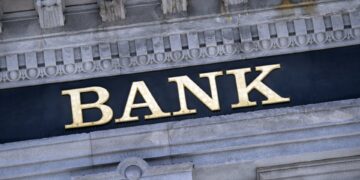If your ATM didn’t dispense money even as your account was debited, or your UPI (Unified Payments Interface) transaction failed or money from digital wallet was stolen, you will soon be able to take up all these complaints to a single ombudsman in case you are not satisfied with the response of your bank, non-banking finance company (NBFC) or wallet operator.
In order to improve the grievance redressal mechanism, the Reserve Bank of India (RBI) unveiled an Integrated Ombudsman Scheme (IOS) on Friday while announcing the monetary policy.
Under this scheme, you will have one ombudsmen for all your complaints related to a bank, NBFC or a digital wallet.
There are currently three separate ombudsman for banks, NBFCs and non-bank prepaid payment issuers (PPIs), including wallets. The RBI plans to integrate them under one centralized scheme to make the grievance redressal mechanism more efficient and simpler.
“To make the ombudsman mechanism simpler, efficient and more responsive, it has been decided to integrate the three ombudsman schemes and introduce a centralized processing of grievances following a ‘One Nation, One Ombudsman’ approach. This is intended to make the process of redress of grievances easier by enabling customers to register their complaints under the integrated scheme, with one centralized reference point,” said RBI governor Shaktikanta Das.
Currently, the complaints of banking and NBFC customers are addressed separately at different ombudsman.
“At present, the RBI has a Banking Ombudsman (BO) at 22 offices. In the larger offices, a second BO looks into complaints of digital banking, i.e. complaints against authorized payment system operators, in addition to his or her normal work. Plus, there is an RBI ombudsman for NBFCs at four offices,” said Raj Khosla, founder and managing director of MyMoneyMantra.com, a financial services company.
As per experts, integration of the ombudsman is a much-needed step as it will reduce the hassle for customers in choosing the right ombudsman.
“Integration of various banking ombudsman will take away the confusion about whom to reach out to for grievance redressal in case of problems, especially with any and all forms of digital transactions, from credit and debit cards to mobile and internet banking, and even wallet and UPI transactions,” said Adhil Shetty, CEO, Bankbazaar.com, a digital financial services platform.
Integration will also help in streamlining the processes with better coordination among various entities, which will help in quicker resolution of complaints.
“Integration has its advantages of streamlining of systems, optimal utilization of manpower and quicker decision-making, leading to earlier resolution of complaints in a more standardized format,” said Khosla.
However, experts say that for the smooth functioning of the integrated schemes, the ombudsman staff will have to be trained for handling all types of complaints.
“If there is an integrated ombudsman, it will require that the staff have the knowledge and expertise to deal with complaints from different regulated entities and across entities,” said Khosla.
The banking ombudsman plays a key role in protecting the rights of customers and resolving disputes. It was set up by the RBI under the Banking Ombudsman Scheme, 2006.
As per the RBI’s banking ombudsman annual report from 2019, customer complaints are on the rise. The banking ombudsman received 195,901 complaints in 2018-19 (1 July 2018 to 30 June 2019), an increase of 19.75% from the 163,690 complaints it had received in 2017-18.
The increase shows the rising dissatisfaction of banking customers. A good redressal mechanism will help in improving the overall customer experience.
Last month, the RBI also put in place a comprehensive framework to strengthen and improve the efficacy of the internal grievance redressal mechanism of banks.
Under this, some of the measures taken include enhanced disclosures related to customer complaints as well as a provision to penalize banks by way of recovery of cost of redressal in case the maintainable complains are higher compared to peers.








